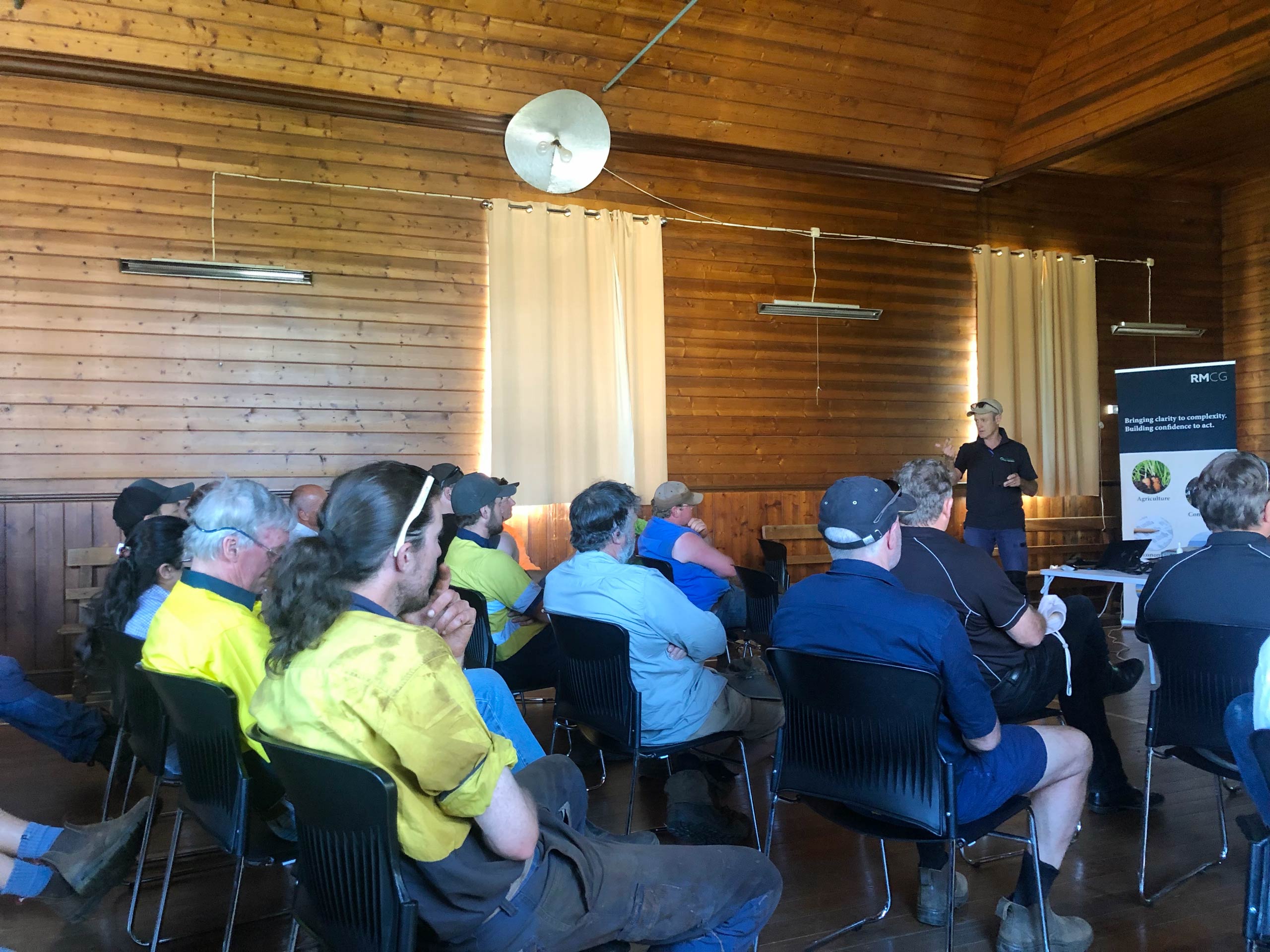Training in-focus for Tasmania’s extension team
While growers have been busy with producing and harvesting this season’s crop, the VegNET – Tasmania team’s focus has turned to its training component of identified priority areas. There is a lot happening in this space, and VegNET has been engaging with a wide range of participants to achieve quality training outcomes for industry. Regional Development Officer Ossie Lang reports.
VegNET – Tasmania has identified training as a priority for the project and is looking to understand what industry requires – from short course/informal opportunities, such as field days or workshops to formal or compliance training, such as chemical accreditation courses or forklift training. The team also needs to explore the requirements for formal and longer-term training such as VET courses (Certificate III, IV or Diploma), as well as university courses and pathways (including micro credentials).
Throughout VegNET Phase 2, we worked with industry to identify broad training requirements for different levels of responsibility on vegetable farms.
This involved packers and processors, as well as agribusinesses that support vegetable production. We found that there is a general lack of suitable formal and informal training available for the vegetable industry, apart from compliance courses. Gaps are in irrigation management, supervisory/management training, LEAN for agriculture, precision agriculture and agronomy – along with others that are more specific to individual businesses.
We found that many years of a lack of suitable training has had an impact on attitudes towards the effectiveness of the formal training system, affecting the culture of training and leading to ‘poaching’ of staff. This means courses that are offered may not have high attendance unless delivered by respected experts in their field. Many people prefer short courses and flexible delivery in their region with high relevance for their business.
VegNET is providing information on any suitable training offers to the vegetable industry and is organising informal training; for example, irrigation efficiency training was held with Irrigation Australia or precision agriculture was a focus via the Ag Innovation Expo held on 28 April.
We are planning to run irrigation efficiency training – which was unfortunately postponed earlier this year due to COVID-19 – later in 2022, just ahead of the irrigation season.
Alongside the irrigation efficiency training there will be a mini ‘road-show’ with a number of irrigation suppliers present on the day to discuss their systems and equipment with attendees.
Stay tuned to the VegNET – Tasmania social media channels for more details. You can also email Ossie on the details below to register your interest.
Importantly, in this early part of Phase 3, we are working closely with TAFE Tasmania and a representative producer/packer enterprise to develop a blueprint of suitable VET training.
Lost in translation
One aspect that became obvious when starting the conversations were issues around industry understanding the VET language, and TAFE staff understanding the complexity of a horticultural business that often does not formally described job roles that easily align with descriptions in VET training packages.
Therefore, we have set about documenting the current staffing profile, the skills and attributes of staff at each level, and how these can align with current training packages.
We will define typical job roles in the Tasmanian vegetable industry and associated training needs that can be communicated to the VET sector in ‘VET language’.
While providing training days is an important part of the training focus area for VegNET – Tasmania, there is also work to be done for having training in place for the future that will provide ongoing support to industry.
To achieve this, we will continue to work with training providers to embed required training within the state and ensure that the courses offered locally are relevant to industry and in line with current industry best practices.
As part of this process, we will continue to engage with training organisations to drive course design to ensure that it is meeting the needs of industry.
Building a training culture
We are looking at this from the ground up and will both document career pathways in the industry, as well as map out how relevant training can support individuals in moving along their individual career pathway.
The current work with the Tasmanian-based grower/packer will be tested with other vegetable businesses and refined as required. It will then be used to inform training that supports career pathways within the industry. Where there are gaps, we will be working closely with the training providers to ensure that courses are offered that meet these needs.
Another aspect we will look into is the lack of suitable trainers in formal system.
With a government focus on agricultural education in Tasmania and a new structure at TasTAFE – as well as more focus on industry needs by the University of Tasmania – the timing of our work will allow us to engage with the training organisations as they review their course offerings.
We have also been working closely with the Burnie Industry Training Hub and the State Government’s Skills Tasmania to ensure that the training is aligned with pathways for students finishing high school. The aim is to support a skilled workforce for the vegetable industry into the future.
While we have been discussing our approach with a range of industry members, we are always happy to hear from more. Please reach out if you have any training needs in your business.
We can support you in finding the right course or information. Or if there is nothing available, we can work on putting training options in place that meet your needs.
Find out more
Please contact Ossie Lang on 0430 380 414 or email ossiel@rmcg.com.au.
VegNET 3.0 is a strategic levy investment under the Hort Innovation Vegetable Fund.
This project has been funded by Hort Innovation using the vegetable research and development levy and contributions from the Australian Government.
Project Number: VG21000
Cover image: Informal training opportunities, such as the Spray Day with Don Thorp, are a key focus for VegNET – Tasmania.

